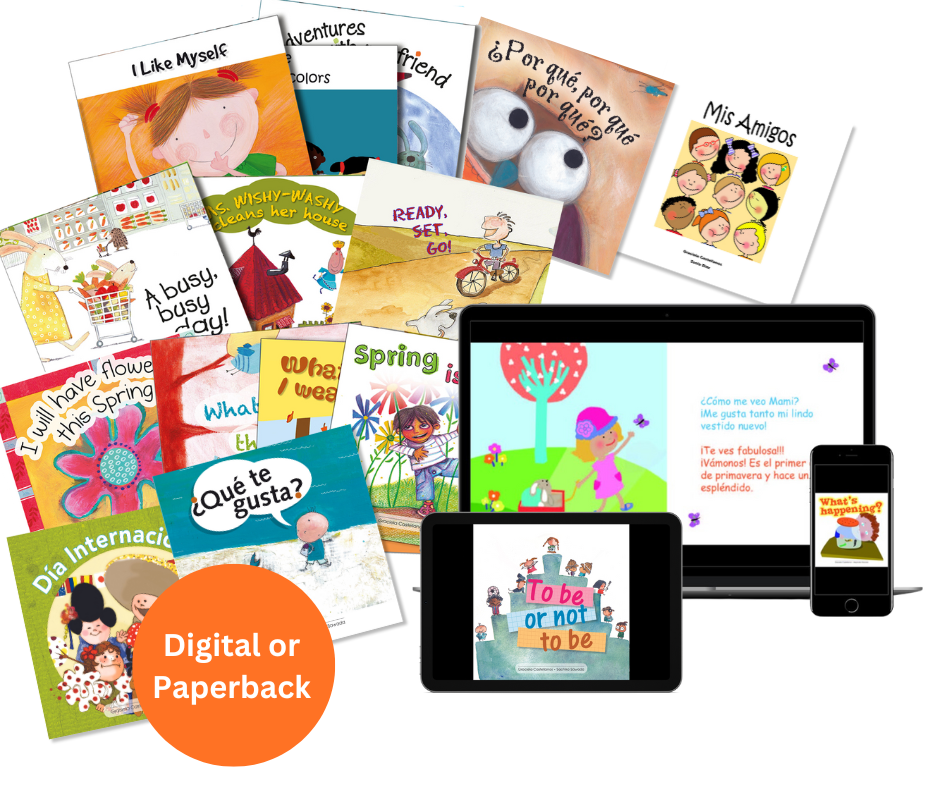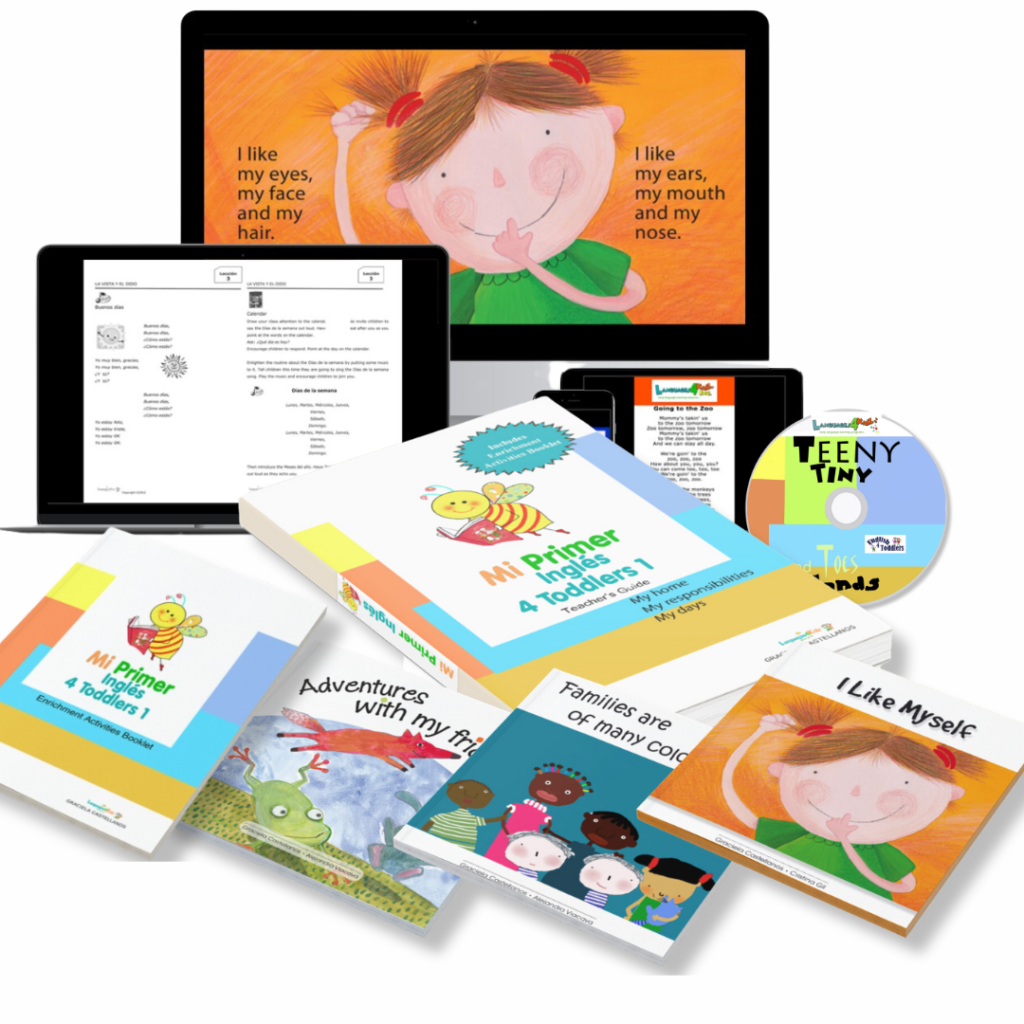Spanish and English Resources that inspire
Two languages, one amazing journey and a world of opportunities for little learners
Empower, educate, enrich!
Our interactive language resources are designed to captivate young hearts and minds, transforming each learning experience into n exciting journey
Transform Kids’ Learning
From playful vocabulary to enchanting stories, children will be buzzing with excitement and linguistic magic!

FREE digital Interactive activities
A special hub of language exploration and practice to make learning enjoyable and engaging for little learners
shaping futures
Comprehensive and well-designed language learning materials crafted for kids
What grown-ups are saying
"Su maravillosa serie de libros bilingües es imprescindible. ¿Mencioné que también pueden descargarlos en formato de libro electrónico a su tableta, teléfono o computadora portátil? Son interactivos y pueden usarlos para leer, divertirse y practicar con su hijo."
@allkidspanish
"Mi Primer Inglés por Languages4Kidz proporciona a los maestros y padres los materiales en español que les ayudan a crear una rica experiencia de aprendizaje para los niños. Por lo tanto, los hispanohablantes que no han enseñado antes encontrarán estructura y apoyo en los planes de lecciones detallados. Además, los maestros experimentados apreciamos la flexibilidad y la calidad del contenido. En general, a todos les encantarán los libros ilustrados en español de Mi Primer Inglés por Languages4Kidz."
@allkidspanish
"¡Las lecciones fueron divertidas y tenían una gran variedad de vocabulario!
Me complació especialmente ver que el plan de estudios está disponible incluso para los más pequeños. ¡Está disponible para niños desde los 3 meses hasta los seis años de edad! "
@newmamiguide




